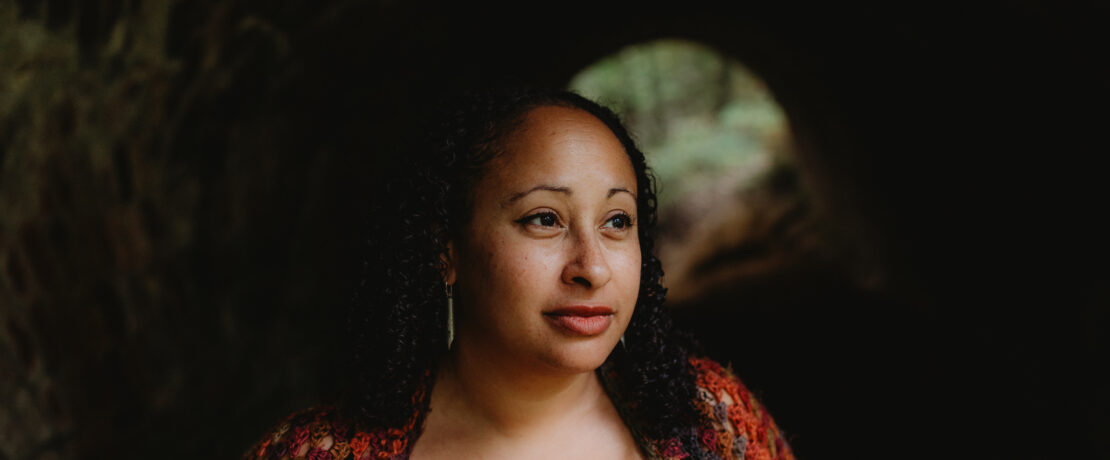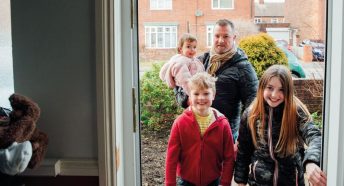Adeola: ‘Trapped in a system of uncertainty is horrifying’
In the summer of 2022, I was finding my feet as a new single parent of four children when I was informed that the landlord of my family home, the home my at the time 3-year-old had been born in, was raising the rent to a sum it would be impossible for me to afford. With no option stay and no new landlord willing to accept a single woman with a large family, I was made homeless.
In an environment of economic squeeze and rising housing needs my local council accepted a duty of care for my family but could not find anywhere to put us. While some families are put into a hotel in an emergency, as a single parent it wasn’t an option as I couldn’t separate out children of 3, 9, 12 and 14 without a second adult.
The only option was for the council to put me into a static caravan just outside of the New Forest boundary. Cut off from the support of the community we had lived in for the previous 6 years and significant distance from schools and classes, we tried to see it as an adventure, put our belongings into storage and hoped the transition to a bricks and mortar house would be quick as it was now September.
Emotional and mental pressure
Due to the rules of the caravan site (that no guest stay longer than 3 weeks), the four children and I were moved four times over the following 12 weeks. To say that was unnecessarily disruptive and damaging to the children’s sense of security in a vulnerable time is an understatement. To say that it added stress and a level of difficulty to my daily life as I struggled to maintain a sense of normalcy and continuity, is a trivialisation of the emotional and mental pressure I was dealing with.
As Halloween passed and the weather grew colder, I started to field questions about Christmas. Would we be allowed a tree, would Father Christmas still visit, and worst of all would we finally be allowed visitors.
Due to the rules, we were not allowed visitors of any kind. That meant the children’s father had seen very little of them over the three months, family members were unable to offer support and friends were out of the question. Yes, we could and did visit other people, but the children had lost their home, the familiarity of their local area and were having their relationships and wider support network limited for reasons they did not understand.
Waiting in limbo
Relief came when we were offered a flat close to Southampton on the opposite side of the forest than which we had previously lived, but it was mid-November, and I would have accepted anything.
I was told when we arrived that it was a temporary situation and that each week new properties would be listed on a website, and I was to ‘bid’ to be considered for them. The problem has been that in the past fourteen months that we have been waiting in this limbo state, there have only been 20 that I have been allowed to put my name into the hat for. Of those there have been between 30 and 90 others all biding and desperately hoping that this home could be theirs.
To be aware that many families, all just like me with three or more children, trapped in a system of insecurity and uncertainty is horrifying. These will all be families that are living a temporary life. That means feeling unable to make plans or think about birthdays and family gatherings. It means feeling uncertain about how deeply to put down roots into the local community when you have no idea when you will leave or where you will end up.
Planning for hope
There is no set caseworker for me to call, and there are no assurances that can be given by anyone on the homelessness team. Overworked and clearly overwhelmed with the numbers of families in desperate need, all they can offer is that at some point in the next year or so, hopefully less, my children and I will be moved into a home that we will not fear being moved on from at someone else’s whim. In the meantime, we make plans for the pet they would dearly love to have, for the plants they would like to grow in a garden, and they draw design after design for how they’d like their bedrooms to be.
We’re still trying to treat this as an adventure, full of possibility and hope but some days that is easier than others to hold on to.
Let’s end this crisis
We’re so grateful to Adeola for sharing her deeply personal story with us. Along with countless others, Adeola and her family have faced the sharp end of an affordable housing crisis that has created instability, pain and worry. With over 300,000 people on waiting lists in rural England, it’s just not right that people cannot access an affordable home. We’ve launched a rural affordable housing campaign to call on the government to do better. You can get involved by signing our handraiser here.









